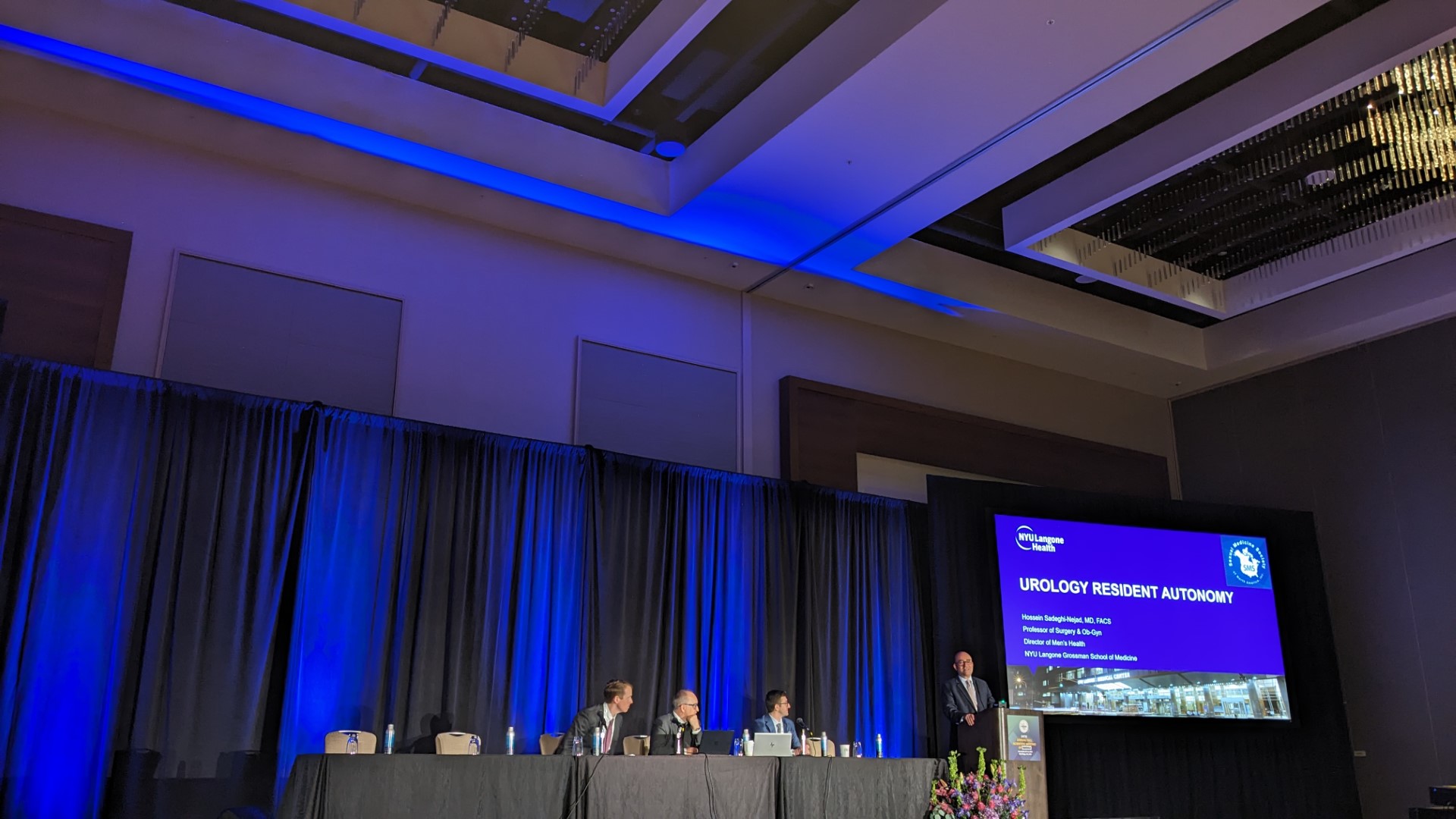Today at the 24th Annual SMSNA Fall Scientific Meeting, Dr. Hossein Sadeghi-Nejad addressed the decline in resident autonomy in urology and sexual medicine. Residents in urology appear to be graduating with diminished confidence, and are less likely to be assigned to independently handle major surgical cases. The trend of decreasing resident autonomy has been consistent from 2004 to 2019, with the percentage of resident-only surgical cases dropping from 31.3% to 18.6%.
Dr. Sadeghi-Nejad highlighted the growing unease among residents who may feel unprepared to work without supervision in significant surgical procedures. Despite the decline in autonomy, the study revealed that the postoperative outcomes of resident-only cases are remarkably similar to those completed with both a resident and an attending clinician. This challenges the notion that decreasing resident autonomy necessarily leads to improved surgical outcomes.
The findings suggest that the traditional approach of limiting resident autonomy may not be as beneficial as previously thought. The data presented raises important considerations for medical education and training in urology, emphasizing the need to strike a balance between providing adequate supervision and allowing residents the opportunity to develop the skills and confidence required for independent practice. As the medical community navigates these challenges, it becomes crucial to reassess training methodologies to ensure that residents are well-equipped for the demands of their future roles in urology and sexual medicine.
You may also be interested in...
Other Popular Articles

What Is the Average Penis Size?
If you have ever wondered how your penis compares to others in terms of size, you are not alone. Many men are curious to know how their penises stack up compared to the average. Unfortunately, general curiosity can sometimes give way to full-on obsession and anxiety about penis size. This can be an unhealthy and often unnecessary fixation, especially because most men who think their penises are too small have perfectly normal-sized penises.

What Is Jelqing, and Does It Actually Work?
The term “jelqing” refers to a set of penis stretching exercises that some believe can make the penis bigger. Although the practice has gained attention and popularity in blogs and internet forums in recent years, there is no scientific evidence that it is an effective way to permanently increase the size of one’s penis. In fact, in some cases, jelqing may actually cause damage to the penis, so it is a good idea to get all the facts before setting off to try it.

What Is Sensate Focus and How Does It Work?
Sensate focus is a technique used to improve intimacy and communication between partners around sex, reduce sexual performance anxiety, and shift away from ingrained, goal-oriented sexual patterns that may not be serving a couple.

Can Sex Reduce Menstrual Cramps?
The SMSNA periodically receives and publishes ‘guest editorials.’ The current article was submitted by Mia Barnes, a freelance writer and researcher who specializes in women's health, wellness, and healthy living. She is the Founder and Editor-in-Chief of Body+Mind Magazine.
Having sex while you experience menstrual cramps is healthy and can provide significant benefits. While it might not be the first activity that comes to mind when your PMS or period cramping begins, many people enjoy sex to reduce menstrual cramps, experience increased pleasure and benefit from other advantages. Learn more about having sex while menstrual cramps are happening and how it can help your body.

How Long Does It Take the Average Man to Ejaculate?
On average, it takes a man between 5 to 7 minutes to orgasm and ejaculate during sexual intercourse.

Can Sex Throw off Your Vaginal pH Balance?
The SMSNA periodically receives and publishes ‘guest editorials.’ The current article was submitted by Mia Barnes, a freelance writer and researcher who specializes in women's health, wellness, and healthy living. She is the Founder and Editor-in-Chief of Body+Mind Magazine.
Your vagina is a pretty powerful organ. It is a pathway for menstrual blood and babies. It also is a main player in sexual intercourse. You might hear about your vagina’s pH and worry that yours is at risk. Here’s what to know about vaginal pH, including the impacts sex could have.
You are prohibited from using or uploading content you accessed through this website into external applications, bots, software, or websites, including those using artificial intelligence technologies and infrastructure, including deep learning, machine learning and large language models and generative AI.


